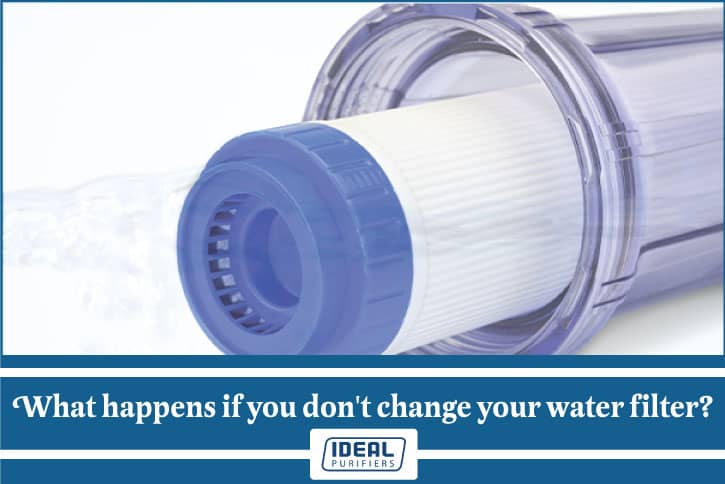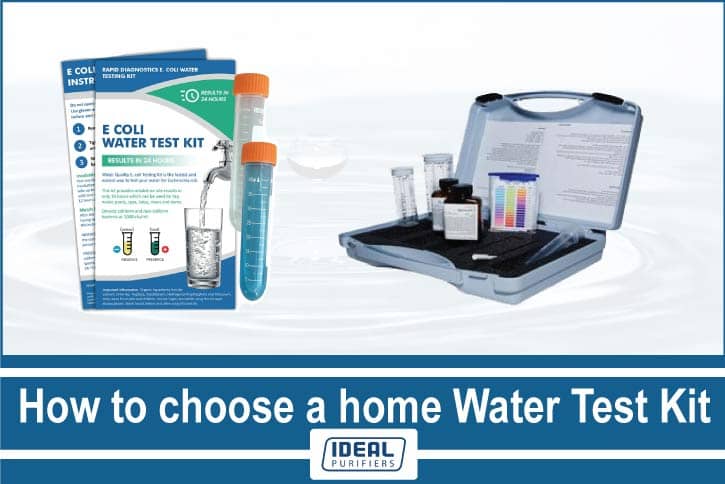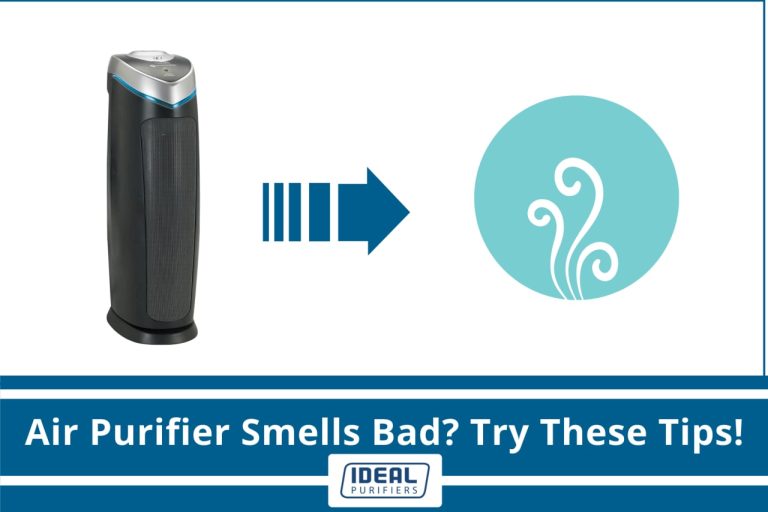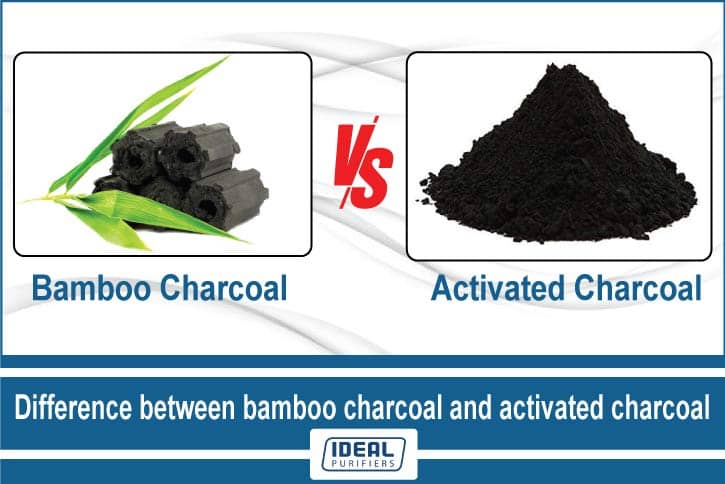Water filters are available everywhere nowadays because of purity it offers. Drinking fresh, contamination-free water is an essential requirement for maintaining good health. A Water Filter ensures that you get crystal clear, healthy water at home every time.
What happens if you don’t change your water filter periodically? Not changing the water filter might create several problems, especially health-related issues for us. Unchanged filters can hold toxins, which filters from water & cause damage to the filter unit.
This article will describe the consequences of not changing water filters & you will learn the necessity of replacing water filters periodically. Stay tuned!
Table of Contents
What happens if you don’t change your water filter?
Several elements present in water, especially Water Pathogens, include viruses, bacterias, & parasites. Most of them are harmless as some might be harmful to our body. Water filters actually filter those elements from entering our bodies.
Some of the most common dangers of not changing water filter on time are given below –
Mineral Growth
Minerals ensure proper growth of our body & improves health, especially for babies. Water filters monitor the ratio of minerals that passes on with water.
Minerals gather in the water filters if not replaced on time. In case drinking water from that filter without changing it periodically might grow stones in our kidneys. Living with kidney stones is painful & might be life-threatening if not get rid of those stones.
Solution – Changing water filter on time.
Contaminants Separation
Default water supply contains contaminants that are filtered by water filters at our home. Every filter has a specific time limit for usage. Using water filters after the date expired is like drinking raw water from supply lines.
Since water doesn’t contain too many pathogens, it might not be the case for those living in unhygienic areas. Water-borne contaminants might spread away there.
Solution – Changing water filters on time.
Leaking/Lead Buildup
Apart from minerals, lead can buildup in the water filters as well. The lead mineral comes from water pipes & contaminates water. Lead toxicity appears like goop that can leak out with the discharged water.
This toxicity gives a foul odor & disgusting color in the water. It might damage the kidneys & brain over time slowly.
Solution – Changing water filter when expired date.
Low Water Pressure
Expired water filters might hinder the regular water flow, more like clogging. When this happens, water pressure becomes lower than usual.
Everyday household works/activities that need water continuously will hamper the workflow. As a result, production goes down & frustration goes up.
Solution – Replacing water filter on time.
Importance of Water Filters
Normal waters contain a certain amount of contaminants. Our eyes cannot detect those contaminants. Installing a good quality water filter removes those unnecessary elements from water & gives us pure water certainly. Some of the benefits water filters give us are given below –
- Water filters eliminate harness-causing minerals from water, improving the taste & smell of water.
- These filters also remove chemical pesticides, heavy metals, chlorine & bacterias & give better-tasting waters.
- Some water filters have carbon blocking and alkaline water ionizers feature, which stops pollutants. Pollutants are the reason for health damage.
- Water filters can remove impurities like chlorine, lead, copper, fluoride, mercury & whatnot.
- These filters reduce the risk of specific cancers and gastrointestinal problems by removing chlorine byproducts from drinking water.
Another common benefit is water filters provide clean water for household chores like cooking & cleaning.
Related Post: Why water purifier is important?
Health Risks of Drinking unfiltered water
Drinking unfiltered water means drinking raw water that might come from a direct line. Drinking natural water is not safe at all. These waters might contain different kinds of contaminants like physical, chemical, radiological even biological.
From where is the water coming from? You don’t know what might be hiding in that water as it might come from a river, a well, pond, or water pump.
Human activities can cause contaminants in the water as well as naturally occurring. Some pollutants are harmless, but some might be harmful to a certain degree.
Lead Poison is one of the significant threats to human bodies. It comes from lead pipes that connect to our plumbing system. Lead poisoning is a slow killer; learning disabilities might occur in children because of it.
Some biological contaminants –
- E. coli and Legionella bacteria
- Norovirus and Rotavirus
- Giardia and Cryptosporidium parasites
Those contaminants might be found in unfiltered water, and expired filter passed Water, treated tap water, etc. Unfiltered water can cause many health issues like diarrhea, nausea, cramps, gastrointestinal.
When should replace the water filter
Water filters come in different sizes & shapes, so it’s hard to tell the exact time. Usually, manufacturers suggest to the clients when they should replace the water filter & what is the filter’s price.
In case the information is given, check the color, smell, taste of the water from the water filter. In case you noticed any changes, it might be the correct time for replacing your filter with a new one.
Water pitchers have an easily swappable system for replacing old filters; some might not offer this feature. Some filtration systems might need to be changed as a whole. Give the manufacturers a call to know the structure of your water filter before changing.
How often to change water filter
Changing the water filter is necessary for drinking contaminants free water. The ideal lifespan of filters varies from model to model. Brita filter, refrigerator filter, or similar filters always come with a manual book.
The Manual book specifies the recommended time on how often to change water filter. A periodical six months time interval is a good time for changing the water filter from our general knowledge.
Risks of using expired water filters
Water filters lifespan based on models. It usually goes from 2 months to 6 years. In this period, water filters block almost all kinds of germs & bacterias & give us pure & fresh clean water.
What happens when water filters expired? Well, then comes the risks. A recent German study mentioned – “filters had a biofilm growing on it, and in some cases, the bacteria colony counts in the filtered water were up to 10,000 times those in the tap water.”
When the water filter expires, it becomes unable to give the optimal performance. As a result, the bacterias that it blocked previously can now come to our bottle of water. Bacterias like Legionella & E. coli might come to our everyday water consumption. The risks of using expired water filters are enormous in a nutshell.
Process of Replacing the Water filter (Step-by-Step method)
Replacing the water filter with a new filter is a step by step process. There are some preparations & necessary things needed at first. The method of replacing the water filter (step-by-step) is given below –
1. Necessary Items
First, collect the items needed for replacing the water filter. While changing the water filter, some support tools are necessary too.
- New filter
- Plumber’s tape
- Strap Wrench
- New O-ring
- Silicon Grease
- Filter Wrench
2. Turn off the water valve
To prevent any kind of accident, shut-off the valve located near the water filter. Turning off the water system for the whole house is not recommended. Identify external shut-off locations in case necessary.
3. Remove the extra pressure of the system
There might be some extra pressure in your water system. Before starting to install the new filter, release extra tension by the opening sink or bathtub tap.
4. Canister opening
Open the canister using a plastic water filter wrench. Some of the water filters might have a dedicated button to release pressure from the water filter unit. In case of facing the difficulty of opening the canister, use a strap wrench.
5. Accessing the Filter & Cleaning
Take a look at housing once the water filter is severed from the inner filter—clean unnecessary water & debris in the housing. Remove the old filter & take a look to learn how often the filter needs a change.
6. Replacing the O-Ring
Between the canister & filter bracket, there is a rubber piece available. That’s the O-ring that needs a change too. After removing the old O-ring, clean the area & install the new O-ring. Apply some silicone grease in the O-ring area first.
7. Install the new filter
Everything is ready for installing the new filter. Before centralizing the new filter in the canister, soak it into the water.While installing, try to keep the filter in a stable position so that the new filter’s top might not get damaged.
8. Repressurise the Water System
Turn on the previous shut downed curb & turn the water tap slowly so that water starts coming. To check the system is functioning properly, listen to the connected pipes
Related Post : Is Boiling Tap Water the Same as Filtered Water?
benefits of Replacing Water Filters
Replacing water filters will ensure a safe & clean water supply—several types of filters available in the market. Benefits of replacing water filters are given below –
Reduction of contaminants
There’s a standard for every filter that maintains the reduction of contaminants. As an example, Reverse osmosis reduces almost 95% of mercury, fluoride, lead & asbestos, which means no harmful foul water anymore.
Optimal water pressure & flow
For a 3500 sq. ft. house, the flow rate should be 2-3 gallons of water per minute for kitchens, 3-5 G.P.M. for the washing machine, 2-4 G.P.M. dishwasher, and 1.5-3 G.P.M. for the shower. A new water filter ensures optimal water pressure & provides a perfect flow rate so that no noticeable pressure drop changes happen.
Better smell & taste
Replacing the filter of the water-filter means ensuring getting back the same taste. From regular tap water, these filters remove almost 97% chlorine as well as other pollutants. No foul odor or bad smell will come from water; that’s a better smell obviously.
F.A.Q (Frequently Asked Questions)
1. How often should I change my water filter?
Ans – Water filter lifespan depends on the various models. In general knowledge, You should change your water filter every 12 months or when you will notice a foul odor or taste from filtered water. Check the water filter manual book for more information.
2. What happens if I don’t change water filter?
Ans – If you don’t change the water filter periodically, then you are risking your health. Because when the water filter starts to wear out, it will become less effective against various bacterias, chemicals, or microbes present in the direct water supply.
3. Why is it Important to Replace Your Water Filters On Time?
Ans – Water filters neutralize various particles or contaminants from water & gives us fresh, clean, pure water. Not replacing means welcoming those health concerns issues that might affect our body. So it’s crucial replacing water filters on time for the best results.
4. What Happens If You Don’t Change Your Brita Filter?
Ans – If you don’t change your Brita filter, then you are vulnerable to contaminants. However, using an expired Brita filter is better than direct drinking tap water. Changing every two months is recommended for the Brita filter.
5. What Happens When a Water Filter Expires?
Ans – Every water filter has a limited lifespan. When it expires, it doesn’t filter the germs & contaminants from the water supply line. As a result, your health becomes vulnerable. So changing the water filter is highly recommended when it expires.
Final Thoughts
After reading the consequences of not changing water filters on time, I hope you get the point of What happens if you don’t change your water filter?. There are several benefits of changing water filters on time available.
Expired water filters are like a magnet of contaminants, so we suggest changing your filters regularly for your family’s health concerns.
In case you forget when you changed your water filter last time, it’s high time for changing it. We discussed how to change your water filter system easily through a step-by-step guide. But it depends entirely on you. Keep check dehydration & stay healthy.





